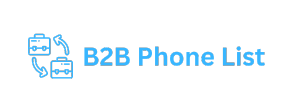In this article, we Tips to improve will present tips to improve website security, explaining the importance of best practices and necessary tools.
With increasing digitalization, ensuring Tips to improve online security is not just a preference but a necessity for every website owner.
Find out here how to effectively protect your digital space.
Importance of website security
Website security is essential to protect sensitive information and ensure user trust.
When a website is secure, visitors feel more comfortable making purchases, sharing data, and interacting.
Additionally, effective security helps prevent reputational damage and financial loss.
Compromised websites can result in search engine penalties, decreasing online visibility and negatively impacting traffic.
Therefore, investing in security is not just a good practice, but an essential necessity for any website owner.
Top Online Security Threats
There are several online security threats that websites face on a daily basis. Among the most common are phishing attacks , where hackers attempt to trick users into obtaining confidential information.
Another common risk is germany whatsapp number data malware , which infects systems and can compromise important data. DDoS (denial of service) attacks are also a concern, as they can bring down a website by overloading it with unwanted traffic.
Additionally, SQL injection is a technique that allows attackers to access information stored in databases. It is crucial for website owners to understand these threats in order to implement effective protection measures and minimize risks.
Website Security Best Practices
To ensure the security of your website, it is vital to adopt best practices that prevent attacks and keep user data safe.
First, use an SSL certificate to encrypt communication between your server and your visitors.
Additionally, keeping all list you may consider adding an email software, plugins, and themes up to date is crucial to avoid vulnerabilities.
Implementing two-factor authentication increases the security of user accounts, while strong passwords should be required.
Another best practice is to perform regular backups of your data so that you can restore it in the event of an incident.
Finally, performing security audits periodically helps identify and correct flaws before they are exploited by hackers.
Essential tools for website protection
To ensure the security of your website, it is important to use tools that offer effective protection against cyber threats.
First, a firewall is essential to monitor and control incoming and outgoing traffic.
Additionally, using burkina faso business directory antivirus software is essential to detect and remove malware that may infect your system.
Security monitoring tools are also useful as they alert you to suspicious behavior and hacking attempts.
Implementing a password management system helps you store and generate strong passwords.
Another important option is backup tools , which ensure that you can restore your website in case of data loss.
Finally, security analysis tools help identify vulnerabilities and perform audits to ensure that security best practices are being followed.
How to perform security testing
Performing security testing on your website is an essential step in ensuring that it is protected against threats. There are different types of tests that you can perform.
Penetration testing simulates attacks to identify vulnerabilities. This helps you understand how hackers could exploit flaws.
Another important practice is carrying out security audits , which involve a detailed analysis of the system, its configurations and security policies.
Additionally, using automated tools allows you to scan your website for known vulnerabilities.
Continuous safety testing is recommended to monitor the effectiveness of the implemented measures.
Documenting all tests and their findings is critical to ensuring that issues are fixed quickly and that security is a constant priority.
Conclusion and next steps in website security
Maintaining website security is an ongoing task and requires constant attention. After implementing security measures and performing the necessary tests, it is essential to regularly monitor the effectiveness of the strategies adopted.
Consider updating security policies and practices as new threats emerge. Additionally, staff training is essential to ensure everyone is aware of security best practices and how to respond to incidents.
Creating an incident response plan allows you to be prepared to act quickly if something happens. Focusing on prevention and continuous improvement is key to ensuring your website remains protected against future threats.
Conclusion
Website security is a top priority for any online business. With the increasing number of threats, it’s crucial to implement solid security practices and use the right tools.
Additionally, staff security awareness and regular testing are critical to maintaining adequate protection.

